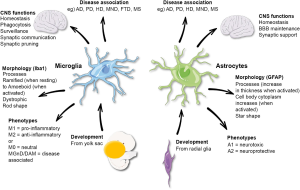The Global Flourishing Study underscores the critical interplay between financial security and happiness, revealing surprising insights into youth well-being. Conducted by a team of renowned researchers, this comprehensive study spans multiple countries, including middle-income nations, and examines more than 203,000 individuals from diverse backgrounds. Results indicate that the conventional beliefs about economic wealth correlating with human flourishing do not always hold true; in fact, some middle-income countries rank significantly higher in global well-being rankings than their wealthier counterparts. This research brings to light the multifaceted nature of well-being, emphasizing that factors such as strong relationships and meaningful lives contribute more to young people’s overall happiness than mere financial success. As society grapples with the implications of these findings, it raises important questions about how we define prosperity and the investments we make in fostering a flourishing future for our youth.
Exploring the theme of human thriving, recent research highlights crucial aspects of youth well-being in various socioeconomic contexts. The examination of flourishing, particularly in middle-income territories, leads to remarkable discoveries about how interconnected our financial security is with overall happiness. Various nations have exhibited unique strengths in fostering conditions that promote human flourishing, often defying the expectations set by global wealth indicators. As we navigate through this global inquiry into well-being, the findings prompt a re-evaluation of our beliefs regarding what constitutes a successful life, suggesting that deep social connections and a sense of purpose may be just as vital as material wealth. This fresh perspective invites readers to consider the broader implications for future generations, emphasizing the importance of investing in relational and spiritual well-being alongside economic growth.
Understanding the Global Flourishing Study
The Global Flourishing Study represents a comprehensive effort to assess well-being across various nations and cultures. Conducted by researchers from institutions such as Harvard and Baylor, this massive undertaking surveyed over 203,000 individuals in 22 countries, capturing insights into the factors that contribute to human flourishing. The study’s methodology allowed for a deep dive into the essential variables influencing well-being, including health, happiness, and financial security, providing a rich data set that can be compared across different contexts. This research has significant implications for how we understand and promote youth well-being on a global scale.
Findings from the Global Flourishing Study challenge the conventional wisdom that higher financial resources directly correlate to greater flourishing. Interestingly, middle-income countries like Indonesia and Mexico ranked higher in well-being than the wealthier U.S. This revelation provokes critical discussions around how financial security and happiness are not merely products of economic status, but instead are influenced by social relationships, community engagement, and individual purpose. The results highlight an urgent need for policymakers to reevaluate investment strategies in youth development to foster a more supportive environment for flourishing.
The Role of Financial Security in Youth Well-Being
Financial security has long been perceived as a cornerstone of well-being. However, the findings from recent studies indicate a more nuanced relationship between financial stability and youth well-being. While the ability to meet basic needs is undeniably important, it is clear that beyond a certain threshold, financial wealth does not equate to happiness or social fulfillment. Youth in countries with lower economic standings reported higher levels of flourishing than those in wealthier nations, suggesting that meaningful relationships and community ties may have a more profound effect on well-being than mere financial capital.
This connection between financial security and happiness emphasizes the importance of holistic approaches to youth development. Strategies focusing solely on enhancing financial independence may not suffice; instead, initiatives must also consider fostering social connections, mental health resources, and personal development opportunities. By aligning financial security with community engagement and personal fulfillment, we can pave the way for a happier, more flourishing youth population that thrives in a supportive environment.
The Shift in Flourishing Patterns Among Youth
The shift in flourishing patterns among youth is particularly concerning, reflecting a transformation in how satisfaction and happiness are perceived during the course of life. The previously observed U-shaped curve of well-being, where satisfaction was high at the start and end of life with a dip in midlife, is evolving into a J-shape. This drastic change suggests that young individuals are experiencing a prolonged period of dissatisfaction, particularly in the United States, raising alarms about the long-term implications for societal health and productivity.
Understanding this seismic shift is critical for addressing youth well-being effectively. The findings suggest that young adults are struggling with pressures unique to modern society, including economic uncertainties, social media influences, and the burden of expectations. By better understanding these dynamics, intervention strategies can be developed that not only target financial security but also empower youth through mentorship, community support, and opportunities for meaningful engagement, thus fostering a more conducive environment for flourishing.
Cultural Differences in Human Flourishing
Cultural context plays a significant role in shaping perceptions of flourishing and well-being. The Global Flourishing Study reveals that different countries prioritize various facets of flourishing, reshaping the definitions of success and happiness. For instance, while wealthier countries might focus on financial success and career achievements, middle-income countries may place greater emphasis on interpersonal relationships and community belonging, which strongly relate to happiness and overall satisfaction.
Such cultural nuances highlight the importance of tailored approaches to promoting human flourishing. When strategies are developed with a deep understanding of local values and social structures, they can yield more significant results. This includes fostering environments where communities support the youth, encourage healthy relationships, and prioritize character development over mere financial achievement. Recognizing these cultural differences is vital as we aim to implement effective programs in diverse societies.
Community Connections as a Foundation for Flourishing
Community connections are essential for promoting overall well-being and individual flourishing. Research consistently shows that strong ties to family, friends, and community contribute significantly to happiness and health. The Global Flourishing Study emphasizes this point by illustrating how youth in countries with vibrant community engagement report higher satisfaction levels, despite varying economic circumstances. This correlation underlines the need for programs that enhance social connections alongside economic support.
Creating opportunities for youth to engage in community activities not only helps in building relationships but also fosters a sense of purpose and belonging. Programs aimed at connecting individuals through volunteerism, mentorship, or group activities can enhance social well-being. By prioritizing community connectivity, we can create a supportive network that nurtures flourishing and mitigates the issues related to isolation and dissatisfaction among youth.
Long-Term Investments in Youth for Sustainable Flourishing
Investing in youth is one of the most critical components of fostering long-term societal flourishing. As indicated by the Global Flourishing Study, youth who enjoy supportive relationships and healthy environments are more likely to thrive into adulthood. This emphasis on early investment calls for a reevaluation of funding and resources directed at health, education, and social services, ensuring that young people have access to the tools they need for success.
Policymakers and community leaders must prioritize initiatives that facilitate early intervention and continuous support throughout youth development. This includes promoting mental health programs, educational reforms, and community services that engage young people in meaningful ways. By embedding flourishing principles in youth development strategies, society can cultivate future generations who are not only financially secure but also emotionally and socially fulfilled.
Spiritual Dimensions of Well-Being
The spiritual dimension of well-being is increasingly recognized as a vital component of human flourishing. The Global Flourishing Study sheds light on how engagement in spiritual practices, such as attending religious services, correlates with heightened levels of happiness and flourishing. This spiritual aspect can provide individuals, particularly youth, with a sense of purpose and community that is essential for overall well-being.
Acknowledging the role of spirituality necessitates a broader approach to well-being that incorporates diverse beliefs and practices. Encouraging spaces for spiritual exploration and community gatherings can enrich the lives of young individuals, supporting them in their quest for meaning and identity. By valuing spiritual well-being alongside financial and emotional aspects, society can foster a more holistic understanding of flourishing.
Adaptations in Economic Development Models
The findings from the Global Flourishing Study compel a reconsideration of traditional economic development models. As noted by researchers, examples from nations such as Japan do not always translate into flourishing for their populations, suggesting that economic success does not inherently lead to well-being. Instead, developmental strategies must integrate considerations of human flourishing, focusing on quality of life and social connections.
Adopting a multidimensional approach to economic development can ensure that growth is inclusive, prioritizing the well-being of individuals and communities. This involves transitioning from purely quantitative assessments of success to qualitative measures that evaluate social cohesion, happiness, and relationships. By reimagining economic indicators to include aspects of human flourishing, nations can strive towards sustainable prosperity that benefits all societal members.
Conclusion: A Call to Action for Youth Well-Being
The urgent messages stemming from the Global Flourishing Study remind us that the well-being of youth should be at the forefront of our agendas. As patterns of flourishing evolve, so too must our approaches in addressing the challenges faced by young populations. It is crucial for societies to mobilize resources, collaborate across sectors, and engage communities in investing in youth development to reverse currently troubling trends.
A collective rethinking of how we define and measure success will enable us to foster an environment where youth can truly flourish. Prioritizing relationships, community engagement, financial security, and spiritual well-being will create a holistic framework that empowers individuals to thrive. Moving forward, we must commit to actionable strategies that ensure our youth are equipped with the support they need for a prosperous future.
Frequently Asked Questions
What is the Global Flourishing Study and its focus on youth well-being?
The Global Flourishing Study is a comprehensive research initiative aimed at examining individual well-being across diverse communities worldwide. It emphasizes youth well-being by exploring the conditions and factors that contribute to flourishing among young individuals, particularly highlighting concerning trends in mental health and emotional wellness.
How does financial security relate to happiness in the Global Flourishing Study?
The Global Flourishing Study found that while financial security is important, it does not solely determine happiness. Rankings revealed that countries with middle-income levels, like Indonesia and Mexico, often outperform wealthier nations like Japan in measures of human flourishing, suggesting a complex relationship between financial status and overall well-being.
What are the key variables that define human flourishing in the Global Flourishing Study?
The Global Flourishing Study defines human flourishing through seven key variables: health, happiness, meaning, character, relationships, financial security, and spiritual well-being. Together, these factors form a comprehensive picture of what it means to flourish as an individual and within communities.
What surprising findings did the Global Flourishing Study reveal about middle-income countries?
Surprisingly, the Global Flourishing Study revealed that middle-income countries often rank higher in well-being than wealthier nations. For instance, Indonesia topped the rankings despite being considered a developing nation, indicating that prosperity isn’t the sole pathway to flourishing; meaningful relationships and community engagement are also critical.
How does the Global Flourishing Study address the concerns of well-being among youth in the U.S.?
The Global Flourishing Study highlights troubling trends regarding youth well-being in the U.S., where there is a significant disconnect between the flourishing of younger individuals compared to older adults, suggesting a need for increased investment in youth mental health and support systems.
What implications does the Global Flourishing Study have for measuring global well-being rankings?
The Global Flourishing Study challenges conventional methods of measuring global well-being by demonstrating that wealth does not guarantee happiness. It prompts a reevaluation of how countries are ranked, emphasizing the importance of social relationships and community in achieving higher levels of flourishing.
How can countries improve youth flourishing based on the Global Flourishing Study findings?
Countries can improve youth flourishing by investing in mental health resources, fostering strong family and community relationships, and ensuring educational systems support emotional and spiritual development. The Global Flourishing Study suggests that prioritizing these aspects can lead to greater overall well-being for future generations.
What role does spiritual well-being play in the Global Flourishing Study’s analysis?
Spiritual well-being is a crucial component of the Global Flourishing Study’s analysis, as it correlates with higher levels of overall flourishing. The study indicates that regular attendance at religious services is linked to greater adult flourishing, highlighting the significance of purpose and spiritual connections in well-being.
| Key Points | |
|---|---|
| Study Overview | The Global Flourishing Study investigates individual well-being across 22 nations, focusing on youth health and happiness. |
| Key Findings | Middle-income countries rank higher in flourishing than wealthy nations, with the U.S. ranked 15th if financial status is not considered. |
| Youth Well-being | Concerns raised about decreasing youth flourishing, shifting from a U-shaped life satisfaction curve to a flat base during early adulthood. |
| Importance of Relationships | Good childhood relationships and health significantly correlate with adult flourishing. |
| Religious Participation | Regular attendance at religious services is universally linked to higher adult flourishing. |
| Future Perspectives | Calls to consider how economic and social developments affect personal meaning and relationships in the context of flourishing. |
Summary
The Global Flourishing Study highlights critical insights into well-being, particularly among youth, emphasizing that financial wealth alone does not equate to happiness or a fulfilling life. This extensive research underscores the need for societies to reevaluate their investments in youth, relationships, and community structures, advocating for a balanced approach that prioritizes both economic growth and emotional health. As the findings suggest a troubling shift in youth well-being trends, it becomes imperative that future analyses continue to address these factors to promote a thriving global society.









